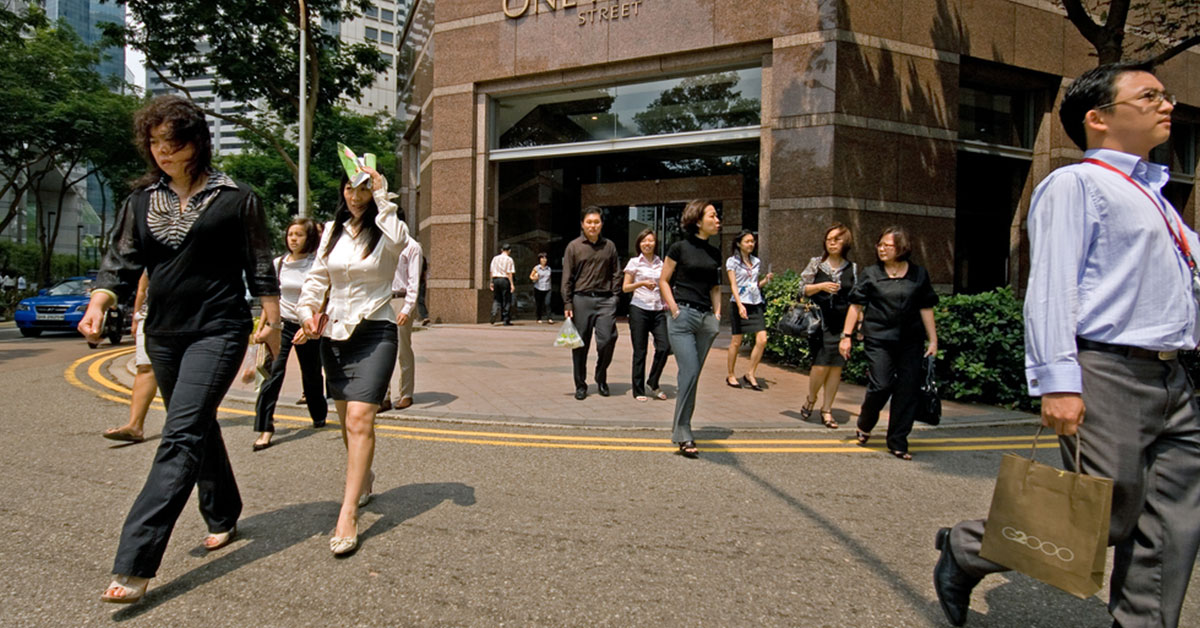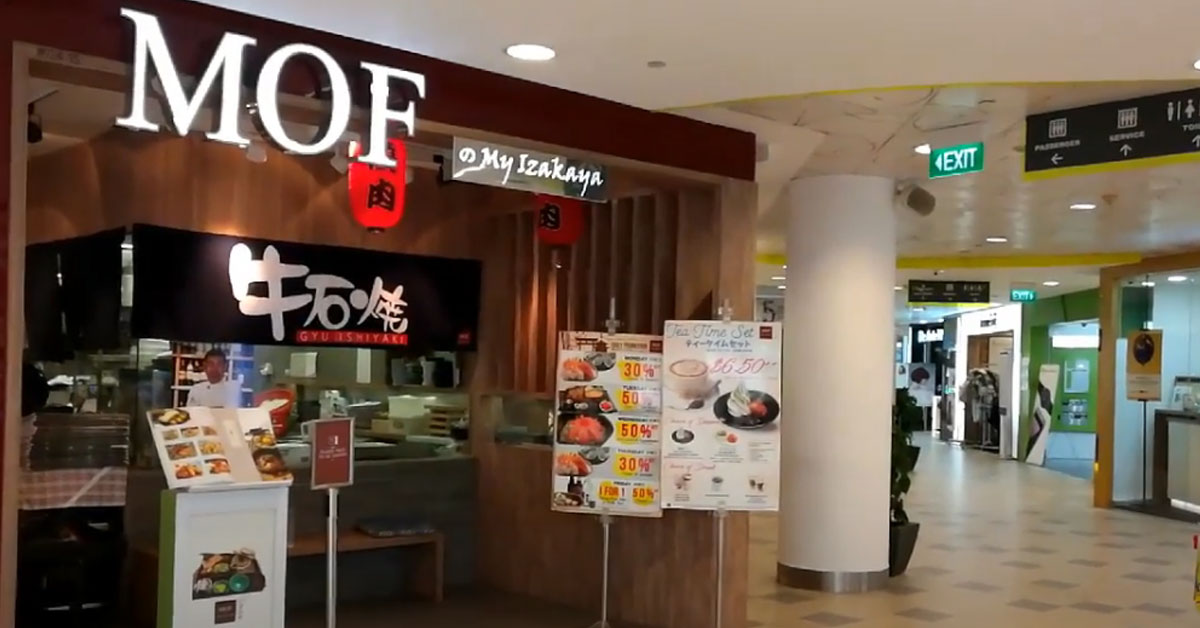You’re probably aware that employees in Singapore will be allowed to return to workplaces from 28 Sep, mostly because your boss called you up seconds after the health ministry made the announcement.
So, those who are going back to work will have to say goodbye to longer sleeping hours and get reacquainted with that one colleague who always smells like he took a bath in perfume.
But wait, hang on a second. Does this mean things will go back to normal? Are we allowed to throw birthday parties? Do we have wear masks? Will napping in the office not be allowed?

Boss: Uh, it was never allowed.
Of course, of course. I’d never do such a thing.
Well, have no fear, Goody Feed is here. Here are 10 facts about the new safe management measures for workplaces that were recently introduced:
WFH is Still the Default
Yes, even though more employees will be allowed to return to work, telecommuting remains the default mode of working, according to the Ministry of Manpower (MOM).
For employees who can do their jobs at home, employers must ensure that they continue to do so for at least half their working time.
This means that an employee with a six-day workweek will only be allowed to return to the office for three days.
Shifts or Spit Team Arrangements Should Be Implemented
To further limit employees’ exposure, employers must ensure that no more than half of the employees who are able to work from home are at the workplace at any point in time.
Employees could be split into teams, with each team restricted to one worksite and designated a specific shift.
There should be no interaction between employees of different shifts, teams, or worksites, said MOM, even outside of work.
So now, when Ah Hock invites you to his home to try his homemade beer, you’ll actually have a good excuse not to go.
These measures will help to reduce crowding in common areas such as pantries, toilets, and lifts, MOM said.
Flexible Workplace Hours Should Be Allowed
In addition, employers should stagger work times and allow flexible work hours, which will help to reduce congestion in common areas as well as public places.
According to MOM, at least half of the employees at a workplace should start work at or after 10am, to reduce crowding on public transport during peak hours.
For those who can telecommute but choose to return to the workplace, employers should allow for flexible workplace hours, to reduce the time spent in the workplace.
For instance, employers could allow their employees to work in the workplace from 10am to 4pm, and telecommute the rest of the time.
Alternatively, they could allow employees to work in the morning and come to the workplace in the afternoon from 1 to 5pm.
At Least 1m Spacing Between Colleagues
If you have a colleague who views baths as an annual event, you might be happy about this safety measure.
In instances where physical interaction cannot be avoided, precautions should be taken to ensure that there’s a clear physical spacing of at least 1 metre between employees at meeting rooms, work areas, and workstations.
These spaces should be demarcated clearly using visual indicators, where possible.
Advertisements
Masks Must Be Worn at All Times
Being reacquainted with your disturbingly bad breath is one of the downsides of having to wear masks during the Covid-19 pandemic.
But even if you’re in an office with less than 10 people, you’ll have to wear your masks at all times.
Except during activities that require masks to be removed, employees, visitors, suppliers and contractors must wear masks at all times at the workplace.
Employers should also ensure that they have sufficient masks for all employees if a need to replace them arises.
Work Events Capped at 50
Work events can resume, but it’s not the type you were hoping for.
Advertisements
Birthday celebrations and the like are still not allowed, but business-related events such as conferences, seminars, and corporate retreats will now be permitted to resume.
These events must adhere to the prevailing workplace safe management measures, of course.
For one, no more than 50 people are allowed per event, to limit the risk of exposure to infection.
Attendees must also maintain a distance of at least 1 metre between themselves, just as they do in the workplace.
And if possible, refrain from serving food and drinks at these events.
Advertisements
Minimise Socialising at Workplaces
As you would have guessed by now, social gatherings are still a big no-no.

Employers must not organise or encourage social gatherings within or outside the workplace.
So you won’t be allowed to gossip about your boss with your colleagues while on your lunch break like you used to.
Boss: You used to do what?
A Safe Management Officer Must Be Appointed
In order to ensure that workers are adhering to the new safe management measures, employers should appoint a Safe Management Officer (SMO) to assist in the implementation, coordination, and monitoring of the system.
Advertisements
Their duties include:
- Coordinating implementation of safe management measures
- Conducting inspections and checks
- Resolving instances of non-compliance
- Keeping records of inspections, checks and correction actions,
Employers must provide appointed SMOs with adequate instruction beforehand, of course. SMOs are also strongly encouraged to receive training.
Employers Should Pay Special Attention to Older Workers
Advertisements
As you know, the elderly are at greater risk for developing severe illness from Covid-19, which is why MOM is urging employers to pay special attention to older workers.
Employees aged 60 and above and patients who are immunocompromised or have medical conditions should be allowed to work from home or temporarily be redeployed to another role within the company.
SMMs Vital in Fight Against Covid-19
As you probably know from the Google searches you do every morning, we don’t have a vaccine yet.
This is why wearing masks and adhering to safe management measures are so important.
Cases are dwindling, prompting the easing of some restrictions, but as we’ve seen in other countries, we could have another wave of the virus on our hands if we let our guard down.
Advertisements
Whether or not you’re happy to return to work, it’s certainly a sign that the Covid-19 situation is improving in our country and that we might soon be able to have at least a sliver of normalcy back in our lives.

















